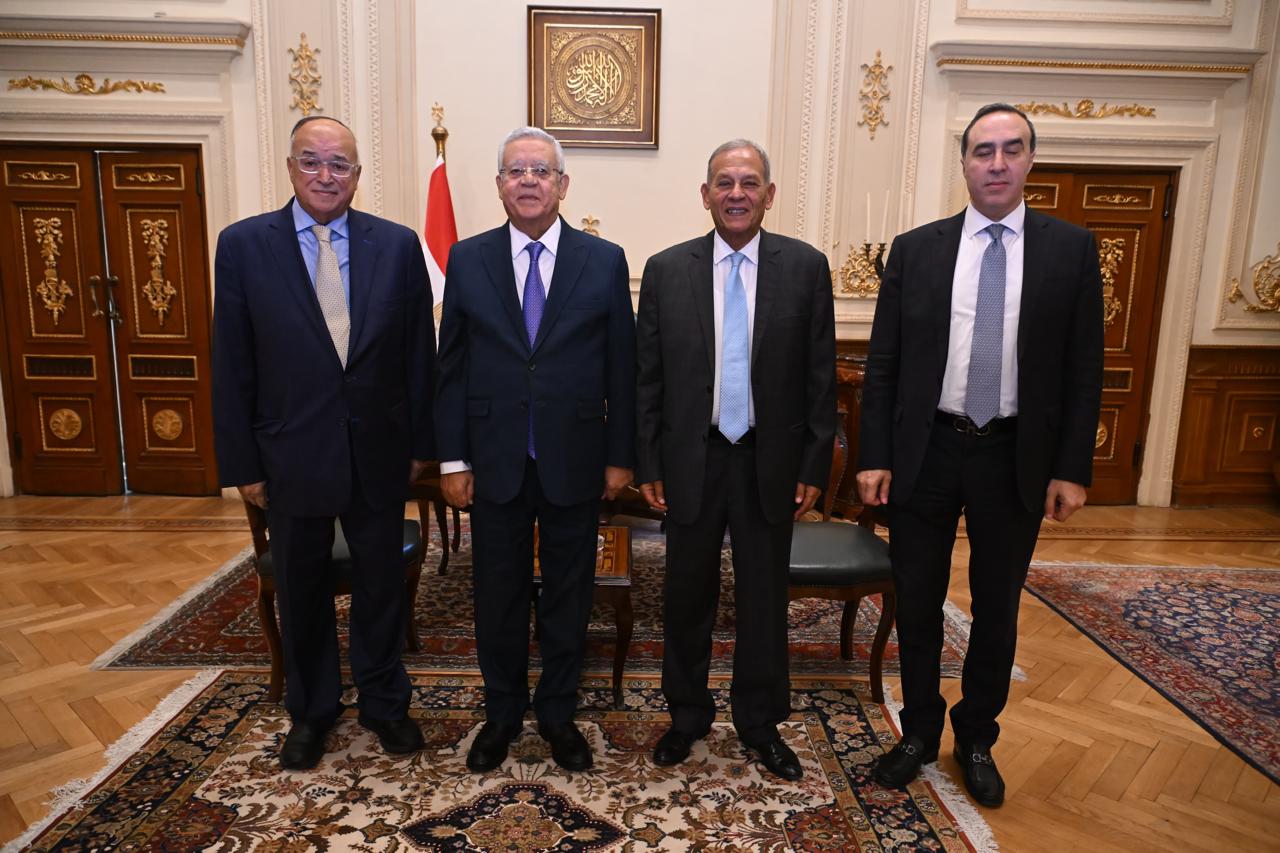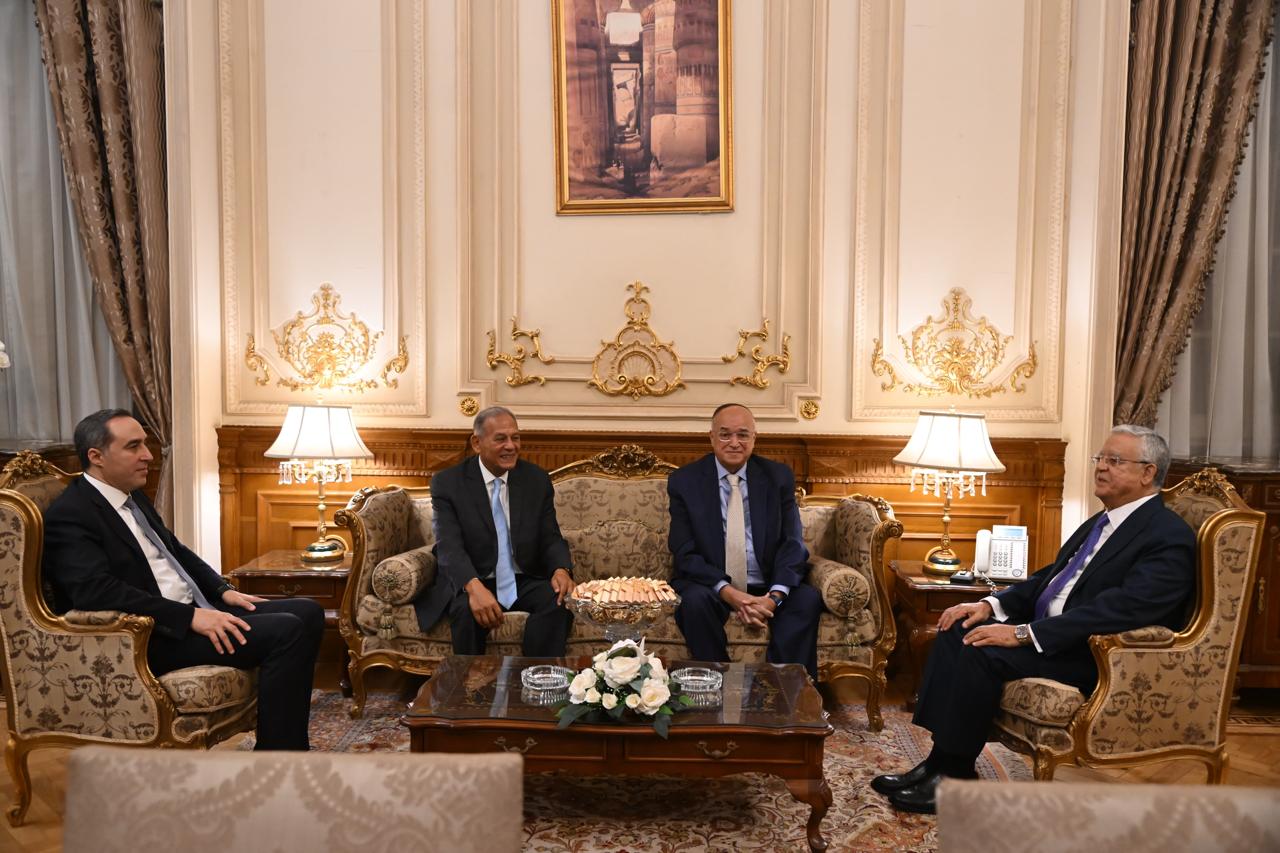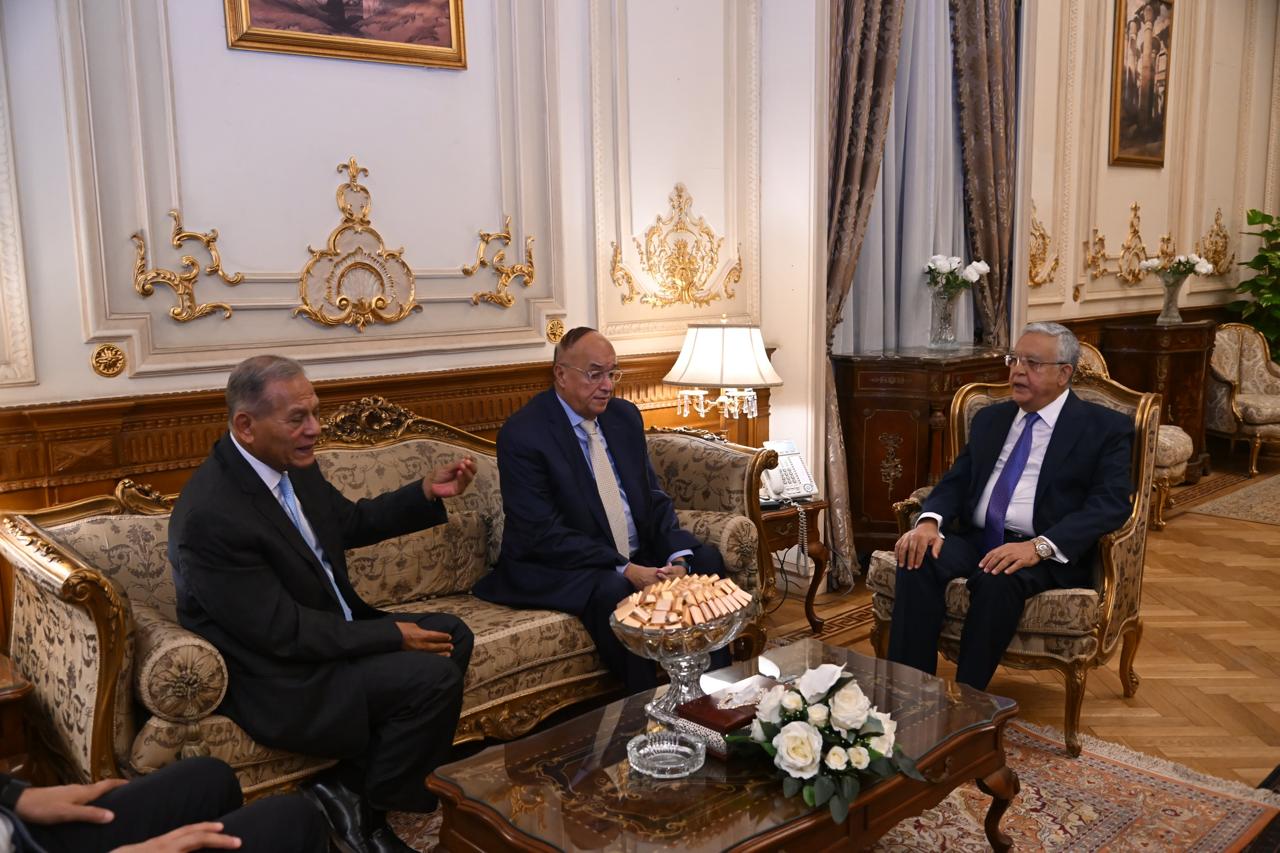Egypt Advances Legislative Reforms to Strengthen the Independence and Mandate of its National Human Rights Institution
The Speaker of the House of Representatives, H.E. Counselor Dr. Hanafi Gebali, met today with Ambassador Dr. Mahmoud Karem, President of the National Council for Human Rights (NCHR), at the premises of the House of Representatives, in the presence of Counselor Ahmed Manaa, Secretary-General of the House, and Mr. Mohamed Anwar El-Sadat, Member of the NCHR and Chair of its Civil and Political Rights Committee.
This high-level meeting forms part of the ongoing institutional dialogue between the legislature and the NCHR on advancing legislative reforms to strengthen the Council’s independence and effectiveness as Egypt’s national human rights institution. The Speaker confirmed that the House of Representatives had provided the NCHR last week with a draft of the proposed amendments to its enabling law, currently under consideration for ratification. During today’s meeting, Ambassador Karem presented the NCHR’s formal observations and recommendations on the draft, highlighting its alignment with the Paris Principles and the recommendations of the Global Alliance of National Human Rights Institutions (GANHRI) Sub-Committee on Accreditation. The discussion underscored the shared commitment of both institutions to ensuring the NCHR’s full conformity with international standards governing national human rights institutions.
The proposed amendments introduce key structural and procedural safeguards aimed at reinforcing the NCHR’s independence, mandate, and financial autonomy:
• Institutional Independence: The revised provisions prohibit the appointment of political representatives or executive officials to the Council’s decision-making body and guarantee security of tenure for its members. Termination of membership would require a two-thirds majority vote, following due process and verification of serious grounds.
• Expanded Mandate: The amendments empower the NCHR to conduct unannounced visits to all places of detention and closed institutions, submit recommendations on the ratification of international and regional human rights treaties, and exercise legal standing to file complaints and intervene in judicial proceedings. They also grant the Council authority to provide legal assistance to victims of human rights violations.
• Financial Independence: In line with international best practices, the amendments repeal the previous requirement for parliamentary pre-approval of foreign funding. Instead, a transparent notification mechanism to the Ministry of Social Solidarity will ensure accountability while safeguarding the Council’s independence.
Between November 2024 and September 2025, the NCHR led a broad, participatory consultation process to review and develop the proposed legal amendments. This process included coordination meetings with Parliament’s Human Rights and Legislative Committees, consultations with the Cabinet’s Advisory Council and the Ministry of Justice, and engagement with the Senate and political parties to promote a rights-based legislative approach. In July 2025, an OHCHR technical needs assessment mission provided expert input that was incorporated into the revised draft. The Prime Minister and the Cabinet’s Advisors Authority conducted a final legal review in August 2025, reaffirming the Government’s commitment to NCHR independence. The process concluded in September 2025 with a two-day civil society roundtable to validate and enrich the draft through an inclusive, participatory dialogue. The final version is expected to be submitted to Parliament by the end of 2025.
During the meeting, H.E. Dr. Hanafi Gebali reaffirmed Parliament’s commitment to ensuring that the NCHR operates as a fully independent institution consistent with the Paris Principles and relevant international standards. He emphasized that the adoption of the amended law will represent a major step toward modernizing Egypt’s human rights framework and consolidating the independence of its national institution.
Ambassador Dr. Mahmoud Karem welcomed the reforms as a reflection of Egypt’s commitment to strengthening institutional foundations for human rights protection. He commended the constructive cooperation and open dialogue with the legislature and reiterated the NCHR’s determination to ensure that the final version of the law translates into practical guarantees that reinforce its autonomy and enhance its effectiveness in fulfilling its constitutional mandate.
Mr. Mohamed Anwar El-Sadat underscored that expanding the NCHR’s mandate and ensuring its operational independence will enhance its ability to monitor, investigate, and address human rights concerns effectively, while promoting a stronger human rights culture across Egyptian society.





 English
English
 Arabic
Arabic
 French
French


